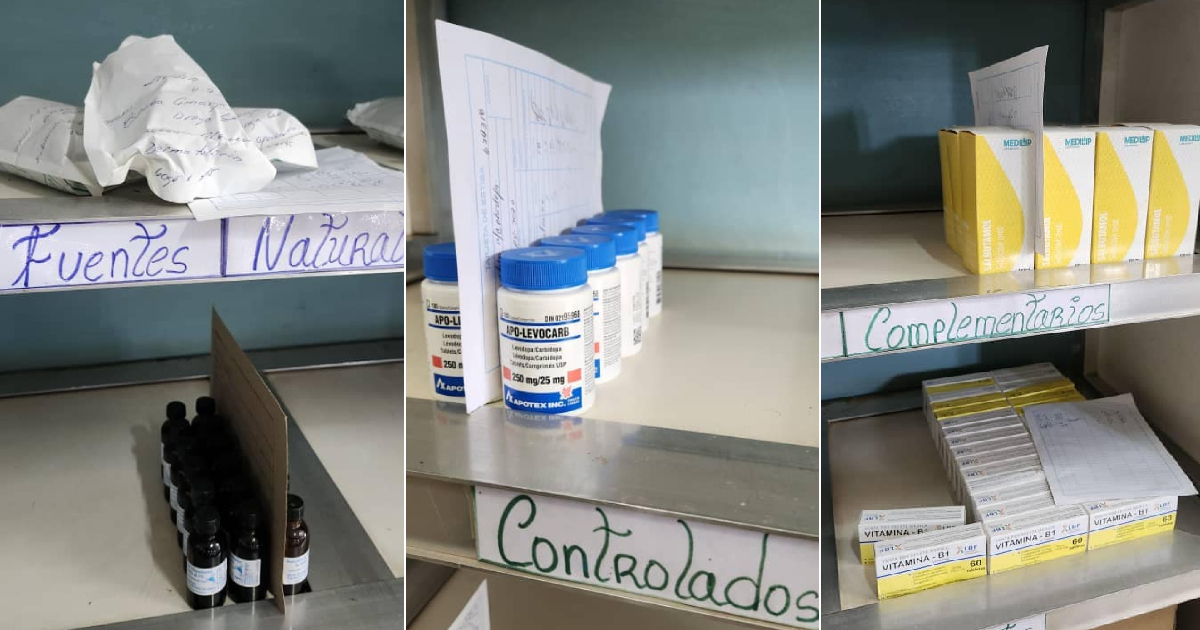The Minister of Public Health in Cuba, José Angel Portal Miranda, informed members of the Health and Sports Commission of the Cuban Parliament on Tuesday that the ongoing shortage of medications in the country's pharmacies will persist. "To say that this situation will be resolved in the next few days would be irresponsible," the minister noted, attributing the lack of supplies to financing issues and internal organizational problems, according to the state-run portal CubaDebate.
The minister attributed the ongoing crisis to the economic embargo, increased costs of raw materials, and high freight charges, which he claimed exacerbate the problem. Portal acknowledged that the issues span from production and importation to the dispensing of medications in community pharmacies and institutions, recognizing the severity and scope of the shortage.
This dire situation, which affects the general populace, was confirmed by Cristina Luna Morales, president of the commission, who highlighted the significant concern among citizens regarding the illicit sale of medications, which is currently the only way many can access some pharmaceuticals.
Internal Challenges and External Pressures
As part of an evaluation of the operations of community and hospital pharmacies, Luna reported that the shortage is a recurring issue throughout the country, negatively impacting the services provided by the National Health System. Meanwhile, María Cristina Lara Bastanzuri, National Director of Medications and Medical Technologies at the Ministry of Public Health, noted that the shortage particularly affects controlled-substance products and commonly used medications. "80% of the drugs dispensed in pharmacies are produced by the national industry," she stated.
The official admitted that currently, they can only supply 30% of the essential medications list. She also mentioned that they have been forced to "move medications from hospitals and polyclinics to make them available, for example, when a child needs them." Lara acknowledged internal issues that also affect the limited availability of medicines, admitting that sometimes medications are in Cuba but "we fail to make them available on time, not just due to fuel and transportation issues, but also because personnel from other institutions that provide services are affected."
Additionally, Lara explained that the number of patients needing controlled prescriptions has increased. She blamed doctors for prescribing available medications in their desperation rather than what the patient truly needs. The report presented to the deputies also pointed to migration and low wages as other causes of the medication shortage, evidenced by a reduction in specialized personnel, including technicians and graduates.
They also noted that the country fails to meet the production plan for natural products, both in volume and variety, an alternative the regime has repeatedly defended as a solution to the shortage. The causes cited include a lack of plant material, refined sugar, natural alcohol, and other pharmaceutical raw materials.
Regarding the implementation of new prices for natural products, the report acknowledged that it has been a misguided policy, as the number of products sold has decreased due to the rising cost of raw materials for their production. This situation is worsened by the fact that pharmaceutical companies lack administrative and cargo transportation, according to CubaDebate.
The report presented to the deputies revealed that Cuba has more than 3,000 pharmaceutical service units, including 2,202 community pharmacies and over 600 in institutions. Additionally, there are 17 pharmacy and optical companies subordinate to the provincial governments, which in turn manage community pharmacies, 77 local production centers, and other units.
Finally, the document noted that the current essential medication list comprises 651 products. The industry generates 62% of the total, with 401 items, while 250 are imported by the Ministry of Public Health. Of this list, 292 medications are available in the pharmacy network.
Faced with the ongoing shortage in the pharmaceutical network, the Cuban regime has been forced to extend the tariff exemption on food, hygiene products, and medicines for travelers from abroad as a desperate measure to alleviate the crisis in medication access. Earlier this year, the ruler Miguel Díaz-Canel acknowledged that the shortage of medications and medical supplies on the island would continue, as pharmacies remain out of stock and dozens of essential products are missing.
This situation is evident in the desperate attempts of people to buy the few products that occasionally arrive at pharmacies, sometimes even spending the night in line to secure a good spot in the long queues.
Medication Shortage in Cuba: Key Questions Answered
Given the ongoing crisis in the Cuban healthcare system, many are left with questions regarding the medication shortage. Here are some of the most common inquiries and their answers.
What are the main causes of the medication shortage in Cuba?
The shortage is primarily caused by economic embargoes, increased costs of raw materials, high freight charges, and internal organizational problems.
How is the Cuban government addressing the medication shortage?
The government has extended tariff exemptions on imported food, hygiene products, and medicines for travelers, and is attempting to improve internal distribution despite significant challenges.
What impact does the medication shortage have on Cuban citizens?
The shortage forces many citizens to resort to the illicit sale of medications and endure long lines at pharmacies, significantly affecting their access to necessary medicines.
What percentage of essential medications is currently available in Cuba?
Currently, only 30% of the essential medications list is being supplied, largely due to production and importation challenges.
